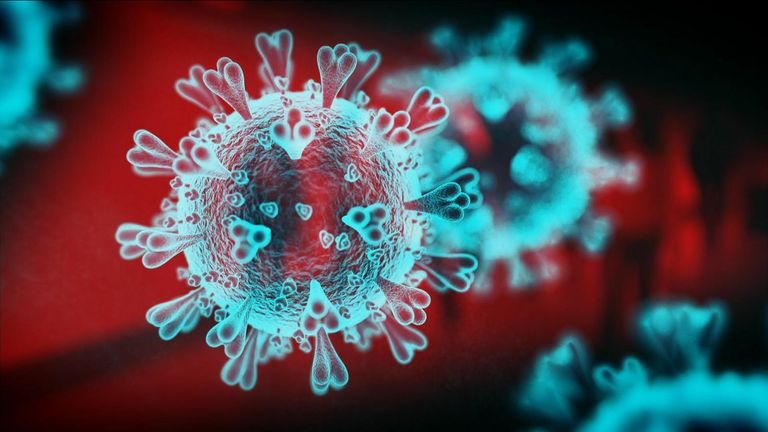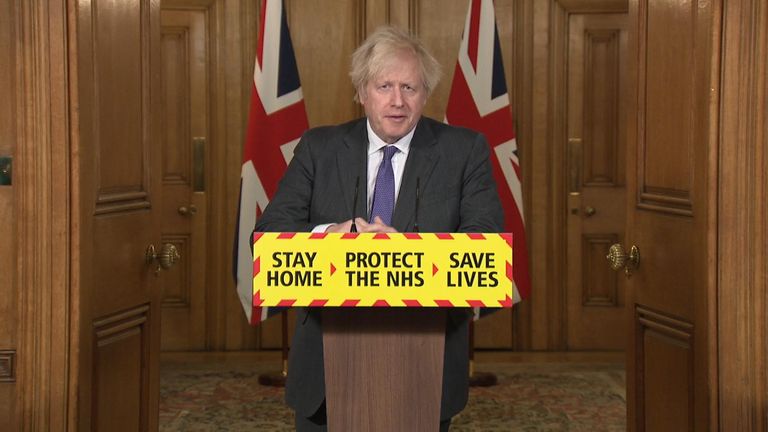This is another cruel twist in the pandemic.
Just as we were coming to terms with a new variant of the virus spreading more quickly across the UK, it's now also been shown to be more lethal.
The indications are that the death rate in those infected with the new variant is around third higher than with the previous version - though the absolute risk of death is still low.
Sir Patrick Vallance, the chief scientist, said with the old version of the virus 10 in 1,000 men aged 60 would die. With the new variant it is thought to be 13 or 14.
He added that the evidence "is not strong", but for it to have been announced at a Downing Street news briefing underlines that it is being taken seriously at the highest level.
The new variant, called B.1.1.7, is now the dominant strain in much of the UK.
The latest weekly infection survey by the Office for National Statistics shows that in London, the South East and Northern Ireland it accounts for around 70% of COVID cases.
But the proportion elsewhere is lower. In Scotland, Wales and Yorkshire it accounts for around 40% of cases.
Lockdown is slowing the epidemic.
The daily number of cases is down more than a third over the last week and the ONS data suggests infections are falling fast in the hotspots of the new variant. Social distancing really works.
There are early signs too that serious cases needing hospital admission are also beginning to level off, though there is big regional variation and the NHS is still under enormous pressure.
That should - even with a more lethal virus - begin to have an effect on the number of deaths by the end of the month.
The vaccine is also bringing hope.
All the evidence points to both the Pfizer/BioNtech and the Oxford/AstraZeneca vaccines being effective against the variant.
Almost nine out of 10 deaths are in the top four priority groups for the vaccine, primarily those in care homes or over 80.
They should be vaccinated by mid-February.
Latest figures show just under 5.5 million people have so far had at least one dose.
Rolling out the vaccine as fast as humanly possible really will be a lifesaver.




